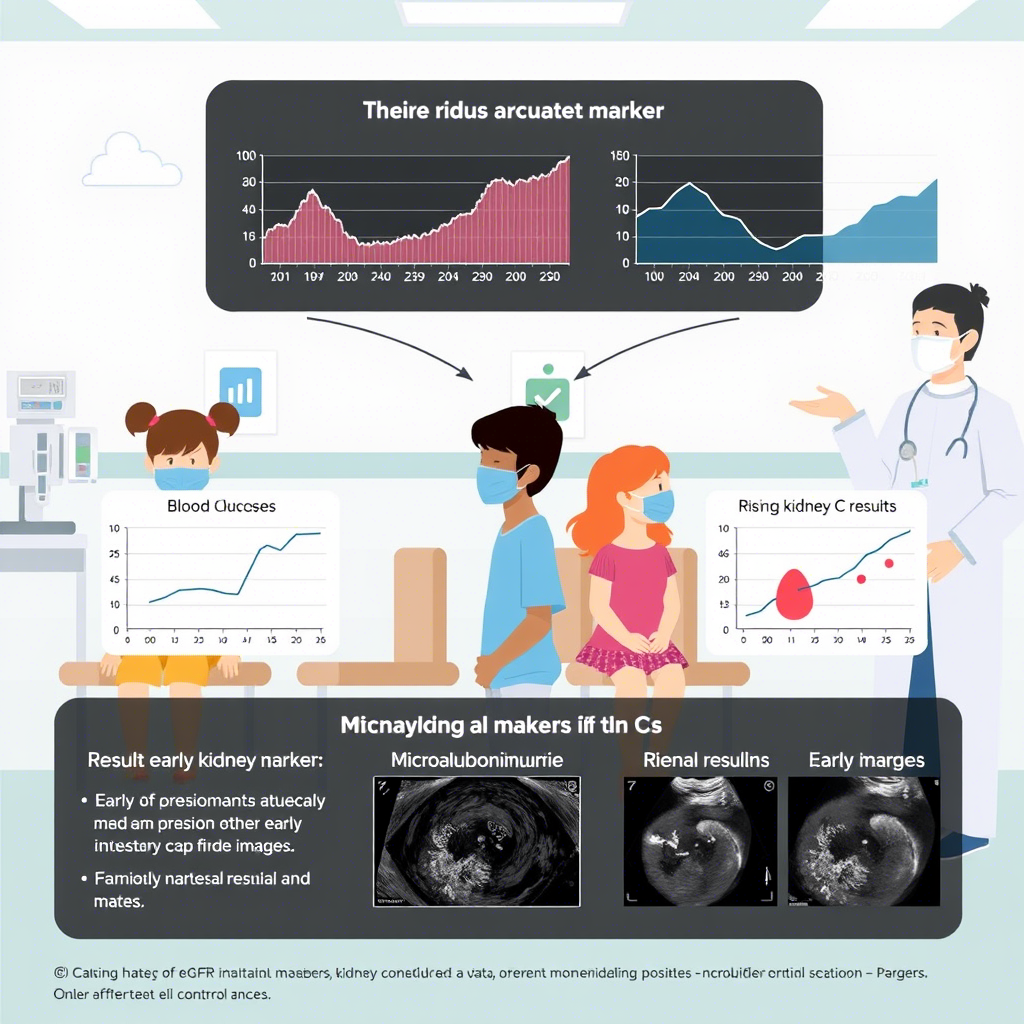Beneath the Baseline: The Hidden Trajectory of Kidney Decline in Children with Subclinical Hyperglycemia
Oliver Bennett¹, Sophie Turner², Harry Collins³, Grace Davies⁴
Keywords:
Subclinical Hyperglycemia, Pediatric Nephropathy, Cystatin C, eGFR Decline, Early Kidney DiseaseAbstract
Background:
Children with mildly elevated blood glucose levels often fall below diagnostic thresholds for diabetes. However, accumulating evidence suggests that even subclinical hyperglycemia may initiate early renal changes long before overt disease develops.
Objective:
To investigate early renal function alterations in children with persistent subclinical hyperglycemia and assess the predictive value of non-traditional biomarkers for future kidney impairment.
Methods:
A prospective cohort study was conducted on 294 children (ages 7–16) with fasting glucose levels between 100 and 125 mg/dL, monitored over 18 months at three pediatric metabolic clinics in the UK. Renal markers (creatinine, cystatin C, microalbuminuria), glomerular filtration rate (eGFR), and renal ultrasound were assessed at baseline and follow-up. A control group of 102 age-matched normoglycemic children was included.
Results:
At 18 months, 37.8% of the hyperglycemic cohort showed a decline in eGFR of≥10% from baseline, compared to 12.3% in controls (p < 0.001). Microalbuminuria was present in 19.7% of cases (vs. 4.9%, p = 0.002), and cystatin C levels were significantly higher (mean: 1.12 ± 0.19 mg/L vs. 0.87 ± 0.16 mg/L, p < 0.001). No child progressed to overt CKD, but renal ultrasound in 13.2% revealed increased cortical echogenicity suggestive of early nephropathy. Multivariable regression analysis showed a significant association between higher baseline HbA1c and triglycerides, as well as eGFR decline (p < 0.01).
Conclusion:
Subclinical hyperglycemia in children is not metabolically innocent. It initiates early renal changes with potential long-term consequences. Traditional screening may overlook early damage. Incorporating non-invasive renal biomarkers into pediatric glucose monitoring protocols could aid in early risk stratification and prevention.
Downloads





